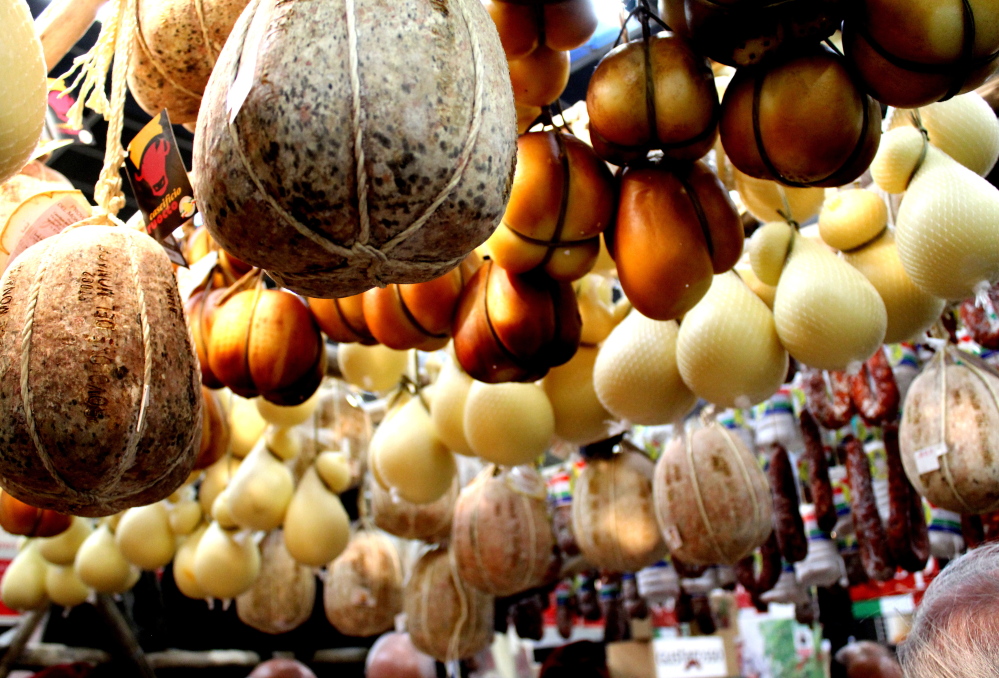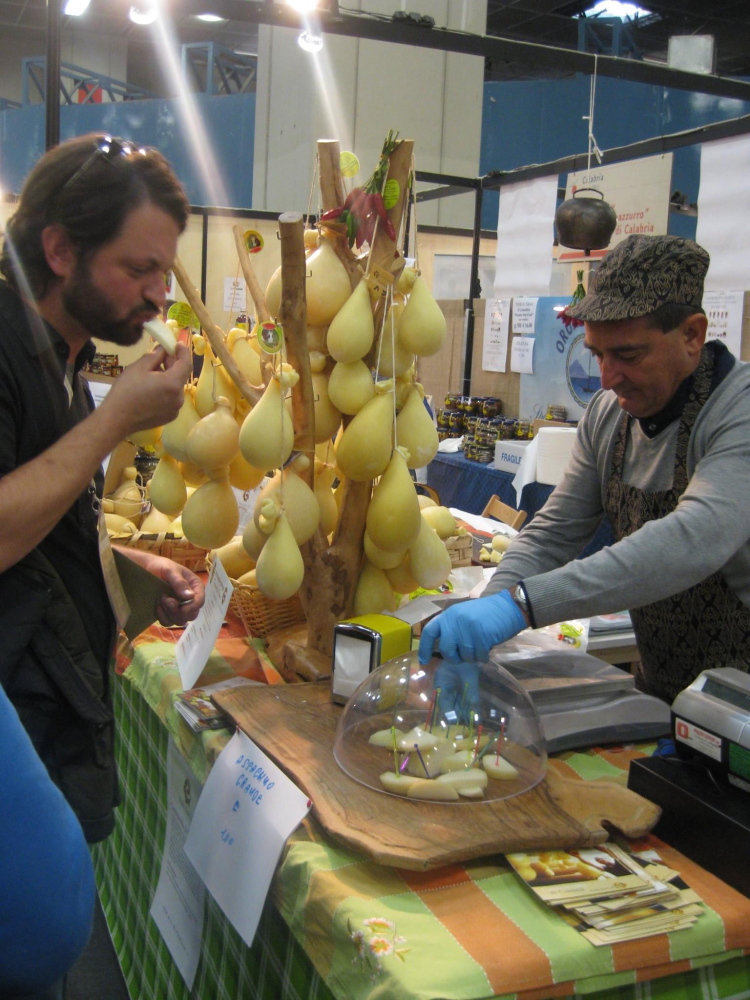Six representatives from Maine were among 3,000 delegates from more than 150 countries who attended Terra Madre last month in Turin, Italy. The Slow Food International bi-annual, five-day conference attracts small farmers, artisan producers, chefs, fishermen and academics. The concurrent Salone del Gusto, billed as the world’s largest food and wine fair, drew some 220,000 visitors.
Maine representative Jeremy Bloom, a self-styled “Internet farmer” from Portland, was among the state’s delegates to attend the rousing opening ceremony. Listening to comments (both live and taped) by Pope Francis, Michelle Obama, California farm-to-table visionary Alice Waters and many more, and watching a dancing, flag-bearing crowd representing the nations at Terra Madre parade into a stadium, it struck Bloom that he was part of “one hell of a global community. What we do locally is important at home, but it is also important to that global community.”
Slow Food was founded in Italy in 1986 in opposition to fast food, specifically a plan by McDonald’s to open a franchise near Rome’s celebrated Spanish Steps. Today, the organization has chapters around the world and promotes the pleasures of locally grown, seasonal food prepared using traditional techniques; celebrates small farmers, indigenous peoples and artisan producers; and catalogs and preserves endangered food and techniques.
Also among Maine’s representatives was Portland resident Amanda Beal, a sustainability consultant who was attending Terra Madre for the third time. (She is also co-author of the recently published report “A New England Food Vision: Healthy Food for All, Sustainable Farming and Fishing, Thriving Communities.”) As she wandered in and out of Slow Fish sessions during the week, she “got the chills realizing the global importance fisheries have to the food system,” she said, “even though this is the designated year of the family farmer.”
The other Maine representatives this year were:
• Portland resident Shawn Saindon, a seafood wholesaler, an apprentice cheesemaker at Winter Hill Farm in Freeport and Beal’s husband.
• Holli Cederholm, general manager of the Maine-based Organic Seed Growers and Trade Association, who farms at Proud Peasant Farm in Thorndike.
• Genna Cherichello, until recently a resident of Rockland, a former Food Corps member (the program is something like a food-focused AmeriCorps) at the University of Maine Cooperative Extension and a self-proclaimed lover of Italian-American food.
• Cory Whitney, a human ecologist and ethnobotanist, and a graduate of the College of the Atlantic. Whitney now lives in Germany, where he is getting his Ph.D.
Bloom, who spent 20 years in e-commerce developing software for buying clubs, came to Turin in part to network. In an interview beforehand, he said he hoped to talk with “as many people as humanly possible” and spread the word about buying clubs as a method of food distribution and community building.
Whitney also focused on networking, in his case with indigenous leaders and food activists who, like him, were attending sessions of Indigenous Terra Madre. He enjoyed eating his way around Africa, sampling Algerian couscous, baobab sweets from Burkina Faso, fresh dates from Libya and more.
Saidon hoped to apply lessons learned at the conference to a creamery he and his wife may start using cow’s milk from her family’s organic farm in Litchfield. At a tasting of cheeses from the Mediterranean, he was amazed at their diversity. “Cheeses from different parts of Sicily alone had distinct flavors,” he said. Also on his mind as he returned to Maine? How to help keep Maine products feeding Mainers, not “pricing themselves out of their own food.”
While “local” is the word on the lips of much of the sustainable food world, Cederholm, who was attending her second Terra Madre and furiously scribbling notes at many conference sessions, said the week cemented her feeling that “organic seed issues are of global concern, and building international relationships is imperative to successfully protecting, promoting and developing the organic seed trade and its growers.”
Cherichello, too, has worked on heirloom seed preservation. She was particularly excited by the work of a group from the Balkans to identify, map and save traditional seeds, breeds and food customs, and she hopes to be able to bring this model to bear on her future work.
The Maine delegates returned energized and full of ideas and memories. But like any food-obsessed travelers, several also brought something more concrete home: Among the items tucked into Bloom’s luggage? Paraguayan yerba mate, Peruvian chocolate and Guatemalan cardamom.
JoAnne Bander is a food activist and writer in Spruce Head and Miami, Florida. This was her fifth Terra Madre.
Send questions/comments to the editors.



